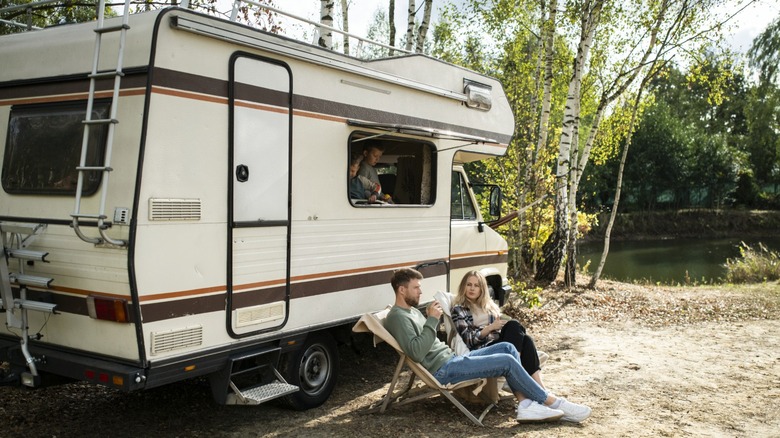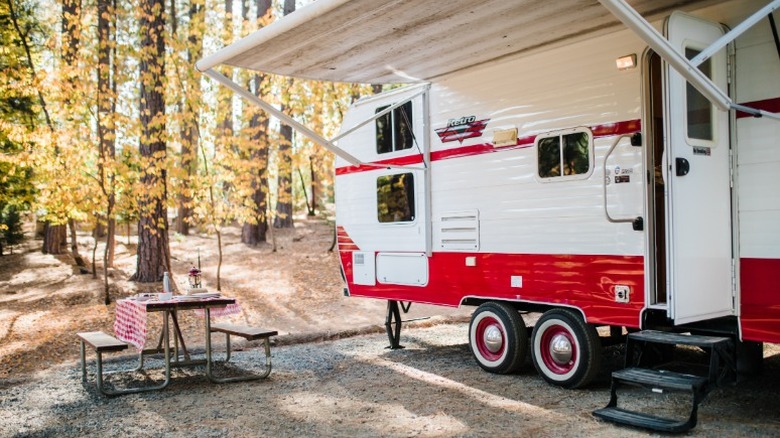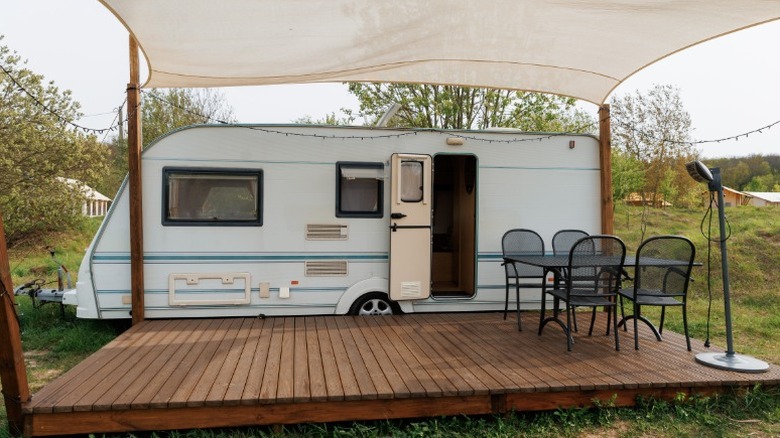Remember when the American Dream was a white picket fence and a house in the suburbs? Not these days. Skyrocketing housing prices, student loan debt, and a desire to stick it to the man have led many to choose alternatives like tiny homes, custom-built camper vans, and RVs. RV living can offer more freedom, a less cluttered, minimalist lifestyle, and a chance to break free from the tethers of a 30-year mortgage and the tyranny of the Homeowners Association. All of which has led to growing appeal amongst younger digital nomads. Unfortunately, though, some states have a problem with folks choosing to set up their RV on private land and call it a permanent home.
The issue usually isn’t whether or not you own the RV or the land. The issue is zoning, and if the governing body considers an RV a dwelling. Even if you own several quiet acres, the local zoning laws may not consider RVs permanent dwellings or allow people living in any structure not connected to public utilities. Health and safety codes may have sewage requirements and square footage minimums, leaving even large, luxurious modern RVs with their solar generators and fancy composting toilets off the list.
States that make it tough or impossible to choose RV life
There isn’t a federal law that bans RV living, but some states have extremely tight restrictions that make it much harder or outright illegal. The states that have said “absolutely not” to permanently living in an RV are Hawaii, Indiana, Michigan, and Delaware. In most every other state, it’s going to come down to the individual laws of the county and sometimes even the city you’re in.
Wherever there are laws, there are loopholes, and there are a lot of creative ways to be technically in compliance. Some folks are working around the laws limiting how long you can stay in one place by shuffling around periodically, kinda like couch-surfing on a larger scale. Is it annoying? Yes, but you remain on the right side of the law.
If you really don’t intend to move, and you are willing to put in the work, you can always build a hybrid set-up — this involves adding some kind of permanent or semi-permanent structure around the RV to satisfy building codes. If you add a pole barn, garage, or even build a tiny home around the RV, the county may treat it like a permanent dwelling.
No rules for RVs
If you’re looking to fully commit to RV life and want to purchase some land where you can park your home on wheels, you’ll want to consider one of the states with the least restrictive laws. These include Florida, Texas, Colorado, Arizona, and Oregon. These states typically don’t require special permitting and will pretty much let you mind your own business as long as you don’t make any trouble. Just be sure to check the local statutes to make sure you’re above board.
Some savvy Rvers are joining forces to purchase land as a collective and to form their own private RV and tiny house communities. Depending on local zoning, the land can be designated as a campground, or the co-owners can go the extra mile to file for an RV park permit, essentially becoming their own landlords.
Though some believe RV owners are fools, as long as traditional housing systems continue to leave people feeling more trapped and even less secure, we can expect an increase in the desire to seek out unconventional alternatives. The good news is that there are a lot of states that allow RV living in some form, as long as you follow a few rules and fill out the proper paperwork. Lawmakers across the nation are considering bills to relax the requirements for what is considered a human dwelling. So, if your idea of the perfect home is trading square footage for more freedom, then you might soon get your chance.







